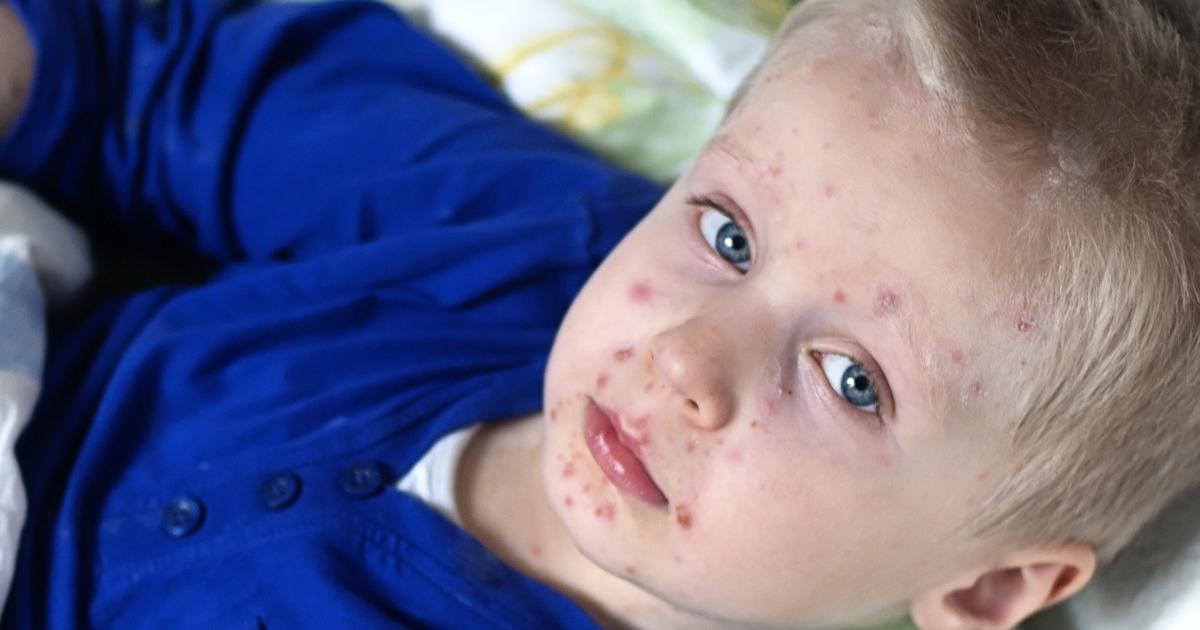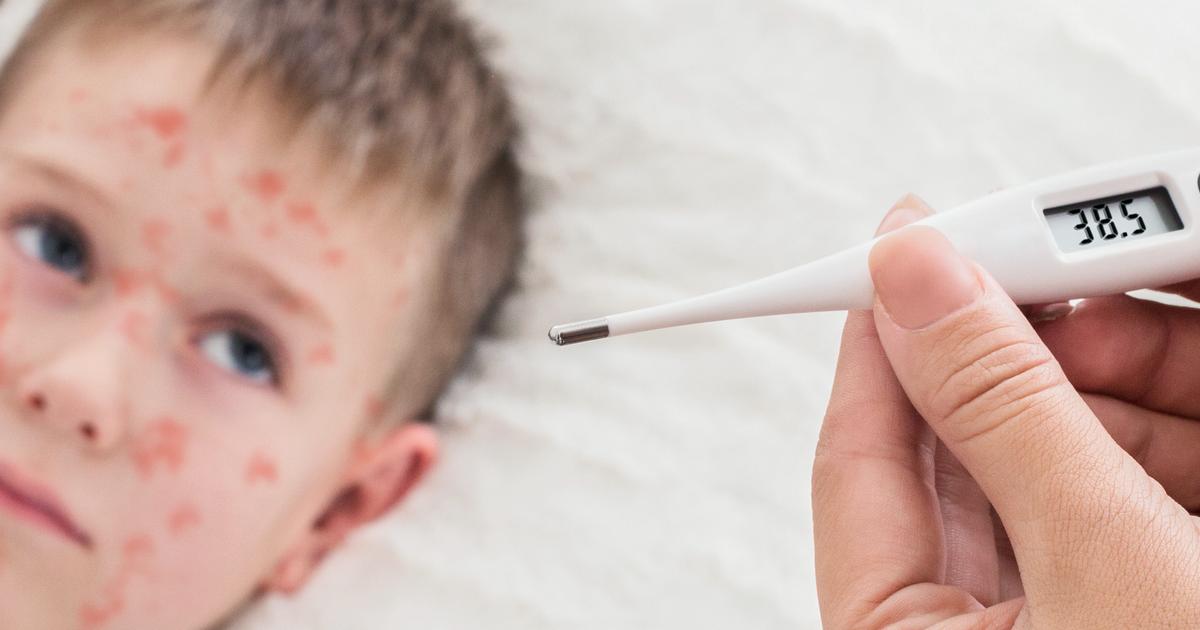Symptoms Linked To The Chickenpox
Chickenpox, also known as varicella, is a highly contagious virus that can be transmitted through the air. Although most common in children, it sometimes affects adults too. A vaccine to protect against this condition was introduced in the United States in 1995, and two doses of the vaccine provide ninety percent protection against the virus. Doctors recommend vaccination for anyone who has not had chickenpox; individuals who have had the condition normally have lifelong immunity and do not need the vaccine. To diagnose chickenpox, doctors will examine the skin for any rashes, and blood tests or skin samples might be used to confirm the diagnosis. Antihistamines can reduce itching associated with the rash, and antiviral medicines such as acyclovir may be prescribed to patients at a high risk of complications from the virus.
Some of the major symptoms associated with chickenpox are outlined below.
Iconic Itchy Rash

An iconic itchy rash is often the major symptom produced with the chickenpox. The rash generally begins on the chest, back, and face, eventually spreading across the entire body. Occasionally, the rash may also be present in the mouth. At first, small raised pink or red bumps appear, and these form blisters that break open in about twenty-four hours. After the blisters break, scabs form over them. Patients with varicella may have between 250 to five hundred blisters, and the patient is considered contagious until all of the blisters have formed scabs. For most patients, the process of scab formation takes about a week. To reduce the extreme itchiness of the chickenpox rash, it may be helpful to put calamine lotion on the blisters, and a colloidal oatmeal bath is often particularly soothing. If blisters occur in the mouth, it is beneficial to follow a bland diet of soft foods so eating is easier.
Read more about the major symptoms of the chickenpox now.
Fever

Patients with varicella may develop a fever, and this symptom normally begins one or two days before the rash appears. Generally, most patients have low-grade fevers, and taking acetaminophen or another fever-reducing medicine is often recommended. A healthcare provider should be consulted before ibuprofen is used for a patient with chickenpox; some research has suggested this medication could cause skin infections or tissue damage in patients with this illness. Acetylsalicylic acid should never be used to reduce a fever in children under nineteen years old. It is important to monitor the patient's temperature every few hours, and a doctor should be called if a fever lasts for more than four days or if it reaches 102 degrees Fahrenheit or above. Medical attention is also necessary if the patient develops a rapid heartbeat or if they experience shortness of breath. To reduce the discomfort associated with fevers, it may be soothing to apply a cool washcloth to the forehead or face.
Keep reading to learn more about the warning signs of the chickenpox now.
Headaches

Headaches associated with this virus are normally mild, and they may begin up to two days before a rash is observed. Most patients with chickenpox have a headache that comes and goes. To reduce headache pain, taking an over-the-counter pain reliever may be beneficial, and patients should ensure they drink plenty of fluids to prevent dehydration which could make headaches worse. Getting sufficient sleep may help to reduce headache symptoms as well. If the patient has a severe headache that does not go away, a healthcare provider should be consulted. It is especially important to seek urgent medical attention if the patient develops sensitivity to light, a stiff neck, confusion, or walking difficulties. Patients who become difficult to wake or are extremely drowsy should also be evaluated as these symptoms may indicate a more serious illness.
Get more details on more symptoms linked to the chickenpox now.
Malaise

Malaise is a feeling of being generally unwell, and this symptom typically begins before the chickenpox rash appears and lasts throughout the duration of the patient's illness. Patients with malaise often feel fatigued, and malaise may be worse if an individual is experiencing stress or anxiety. To reduce this symptom, patients should ensure they get enough rest, and trying stress-relieving activities such as watching a favorite movie or reading a favorite book may help. Malaise will generally resolve on its own as the virus runs its course. However, if patients with chickenpox and malaise start to experience any abdominal pain, high fevers, muscle weakness, or chest pain, they should be urgently assessed by a physician. In addition, individuals who have malaise that continues for more than a week after they have recovered from the chickenpox should be evaluated by a doctor to check whether this lingering symptom might be related to another medical condition.
Discover additional chickenpox symptoms now.
Loss of Appetite

Loss of appetite is common for many patients with the chickenpox, and patients frequently have a diminished appetite throughout the duration of the illness. Loss of appetite may lead to both dehydration and malnourishment, and this could make it harder to recover from varicella. Individuals may skip meals or have an inadequate calorie intake, and some patients with chickenpox may develop mouth blisters that contribute to their reduced appetite. Since the patient may not feel like eating, it could be helpful to use high-calorie meal replacement shakes that provide necessary vitamins and minerals. Soups, smoothies, and juices may be comforting too. Patients and their families might wish to keep a food diary during this illness, as this information could be helpful to medical staff, and it may also help with planning meals the patient would be more likely to enjoy. Individuals should have their weight monitored to ensure any loss of appetite does not result in excessive weight loss, and doctors may be able to suggest foods and drinks that help in maintaining weight. If the patient becomes nauseous or starts vomiting, medical staff should be informed, and it is also important to let the patient's healthcare provider know if they develop significant abdominal pain. Generally, most patients find their appetite returns to normal after they recover from the chickenpox.